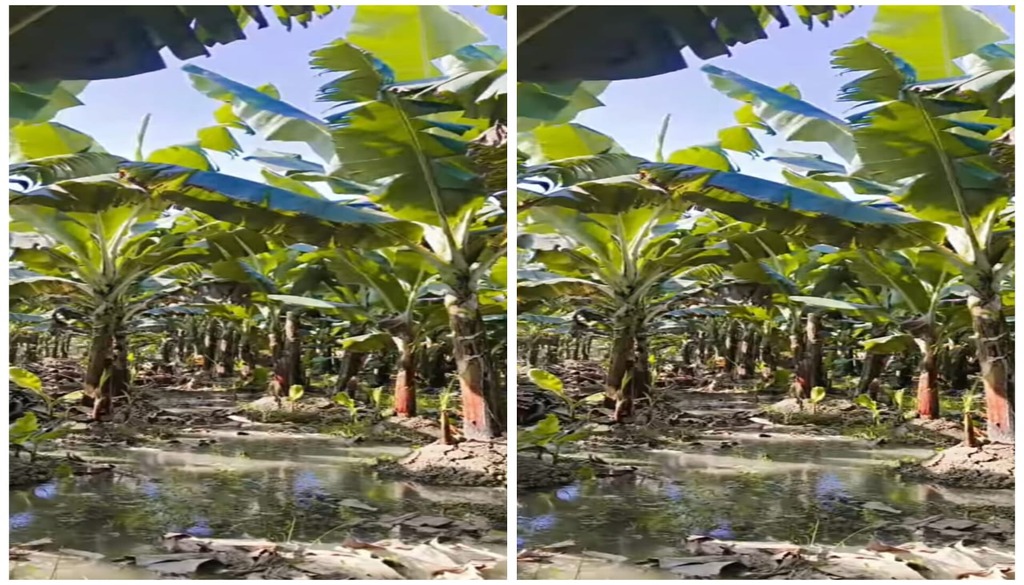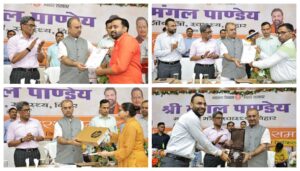Biological Breakthrough Offers New Hope for Bihar’s Banana Farmers Battling Panama Wilt

Bhagalpur: A biological treatment developed by the Indian Council of Agricultural Research (ICAR) is emerging as a game-changer for banana farmers in Bihar, offering a sustainable defence against the devastating Panama Wilt disease.
ICAR Fusicant, a beneficial strain of Trichoderma reesei, has shown encouraging results in field trials conducted across Bhagalpur’s key banana-growing blocks, including Kharik, Navgachiya, Gopalpur, and Bihpur. The treatment was developed at the National Institute of Arid Horticulture in Lucknow and tested on-farm by Krishi Vigyan Kendra (KVK), Sabour.
The pilot, which began in 2023, saw participation from selected farmers—among them Sambalu Kumar, Kanhaiya Kumar and Prince Kumar—who used the treatment during the initial stages of planting. The preparation involves fermenting four kilograms of ICAR Fusicant with half a kilogram of jaggery in 200 litres of water, stirred continuously for 72 hours in a shaded space. Banana saplings are dipped in the solution before planting, and the mixture is also applied to the pit. Crucially, the treatment requires a 15-day buffer if chemical fertilisers or pesticides are to be used.
The results have been promising. “It has been a great relief,” said farmer Sambalu Kumar, who noted a significant reduction in crop loss. Panama Wilt, a soil-borne fungal disease, has long plagued banana growers, often leading to complete crop failure and financial distress.
Virtual guidance from Dr T Damodaran, director of the Central Institute of Subtropical Horticulture (CISH), has helped ensure the effective implementation of the treatment in the field.
Describing ICAR Fusicant as a “boon for banana-producing farmers”, Bihar Agricultural University Vice-Chancellor Dr D R Singh said it could help stabilise yields and reduce economic losses. He urged for wider demonstrations to promote adoption at scale.
Dr Rajesh Kumar, senior scientist and head of KVK Sabour, echoed the optimism, stating that ICAR Fusicant would be integrated into the centre’s regular outreach and training programmes. “We are committed to supporting farmers with practical, eco-friendly solutions that ensure long-term sustainability,” he said.
As Bihar continues to grapple with the impacts of climate change and recurring crop diseases, innovations like ICAR Fusicant offer a glimpse of a more resilient agricultural future—one rooted in science, collaboration and local adaptation.





